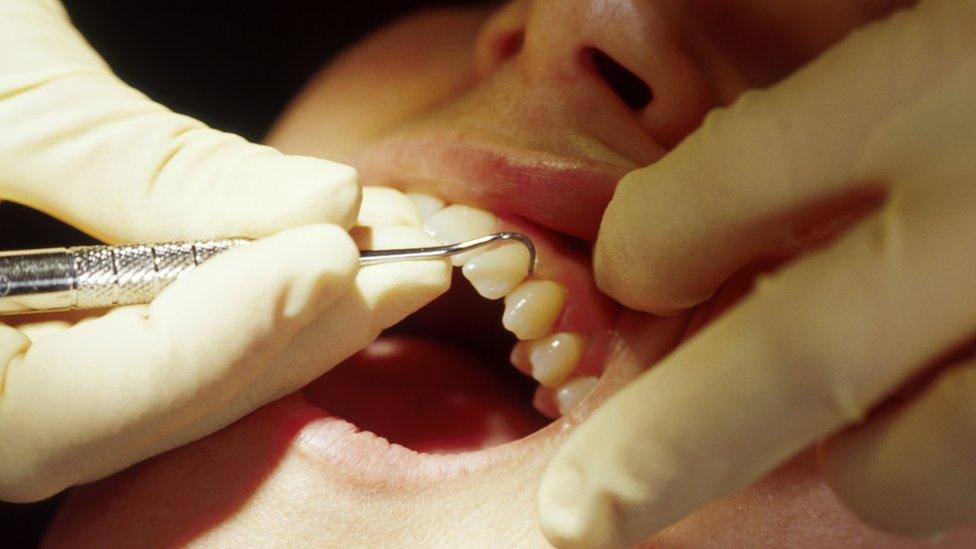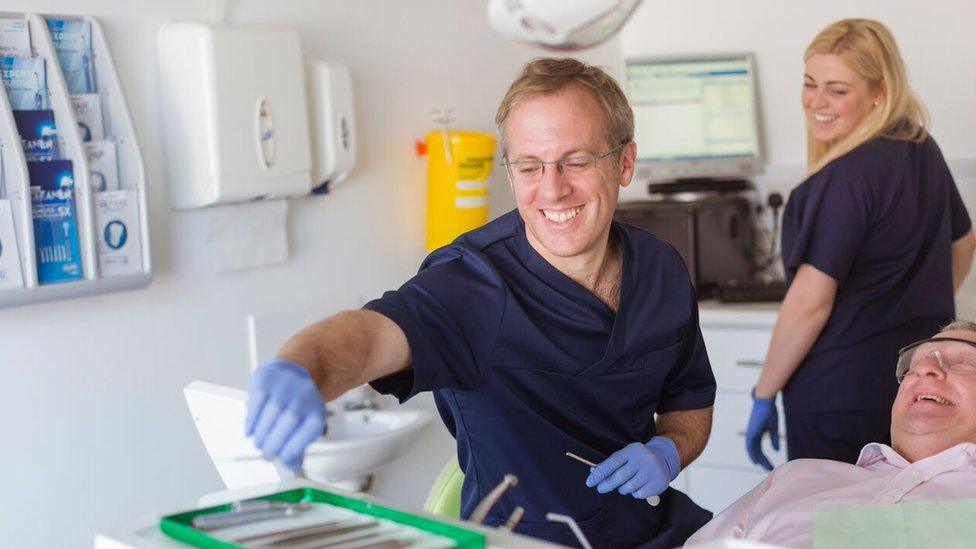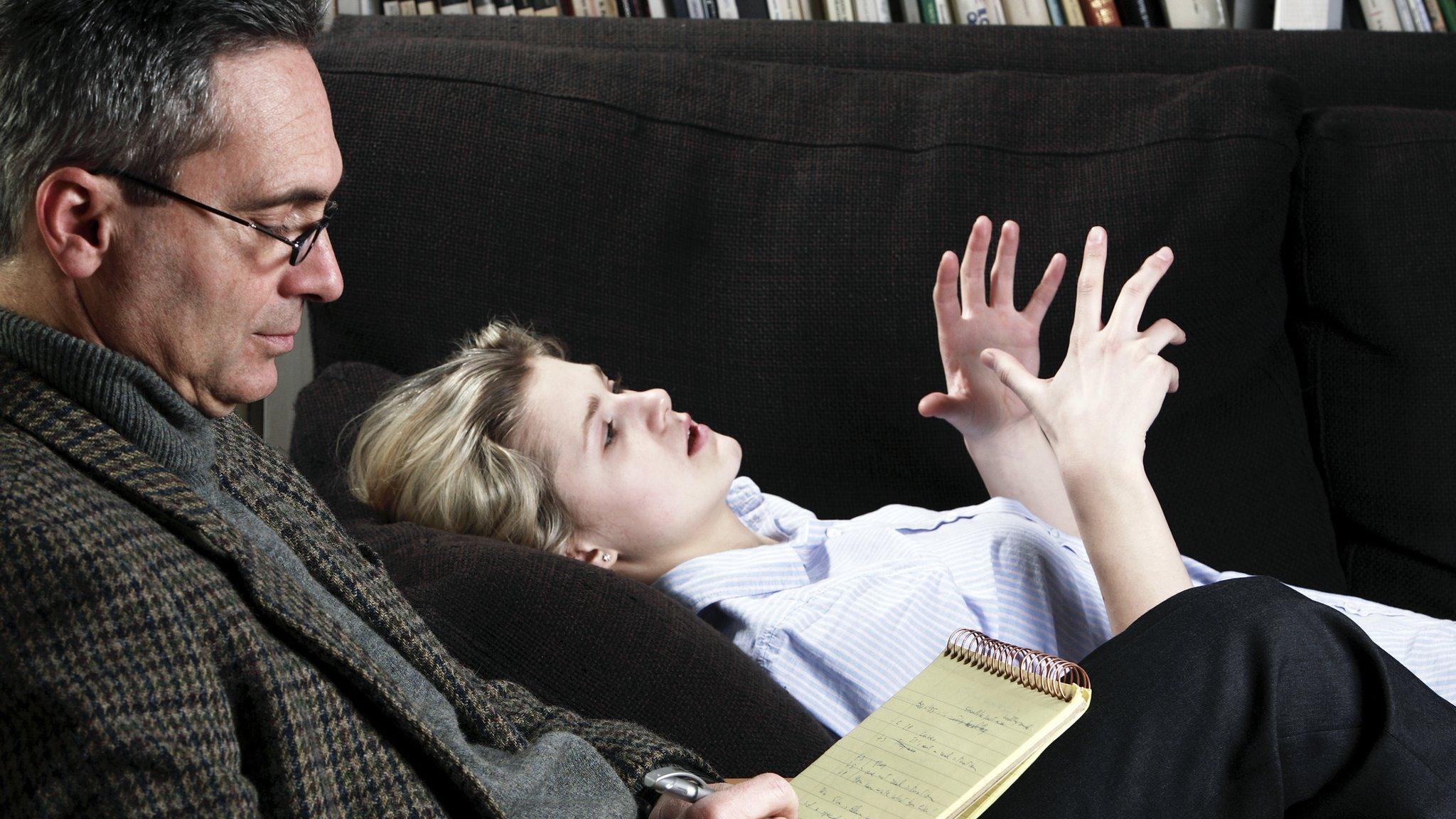Dental phobia patients 'benefit from talking therapy' - research
- Published

People with a dental phobia are more likely to undergo treatment without sedation if they have had Cognitive Behavioural Therapy (CBT), research suggests.
The research, published in the British Dental Journal, looked at 130 people who all feared dental treatment.
All had talking therapy, and more than three-quarters went on to have treatment without sedation.
The research was carried out by King's College London.
Patients with a dental phobia are often sedated to allow them to become relaxed enough to have work done to their teeth.
'Set goals'
Such individuals are also more likely to put off going to the dentist, and as a result experience more dental pain and have poorer oral health.
But getting sedated "does not help them to overcome their fear in the long term", according to the author of the research, Prof Tim Newton.
"The primary goal of our CBT service is to enable patients to receive dental treatment without the need for sedation, by working with each individual patient to set goals according to their priorities," he said.
The research looked at 99 women and 31 men who attended a therapy clinic at Guy's and St Thomas' NHS Foundation Trust.
Three-quarters of the group had a "dental phobia", while the remainder had a specific fear of one aspect of dentistry, such as injections or the drill.
Of all the patients, four-fifths (79%) went on to have dental treatment without the need for sedation, while 6% had their dental treatment under sedation.
The average number of therapy appointments required before a patient received dental treatment without sedation was five.
"Our study shows that after on average five CBT sessions, most people can go on to be treated by the dentist without the need to be sedated," Prof Newton said.
Dentist Ben Atkins told BBC News that during his 23-year career he had only ever referred two patients to have treatment under sedation.

Mr Atkins treats people in Manchester, Liverpool and Cheshire
"Personally I take it as a failure if I have to do that, because good dentistry should be all about communication with your patients and you should be able to talk any fears through," he said.
"It's about putting the patient in control. These days, dentistry should be 100% pain free."
"The patients I have known who need sedation are sick at the very thought of dentistry and often won't even show up, unless they're desperate."
Andy Parkin, 40, from Lancashire, said his phobia "started at a child and then got worse throughout my teenage years".
"The first sign I realise I'm getting out of control is my palms start sweating while I'm still sitting in the waiting room," he said.
"The key to overcoming it is talking things through and finding a dentist who is receptive and having an honest dialogue with him."

What is Cognitive Behavioural Therapy?

based on the concept that your thoughts, feelings, physical sensations and actions are interconnected, and that negative thoughts and feelings can trap you in a vicious cycle
aims to help you crack this cycle by breaking down overwhelming problems into smaller parts and showing you how to change these negative patterns to improve the way you feel
Source: NHS Choices

- Published6 February 2014

- Published7 December 2012

- Published15 January 2011